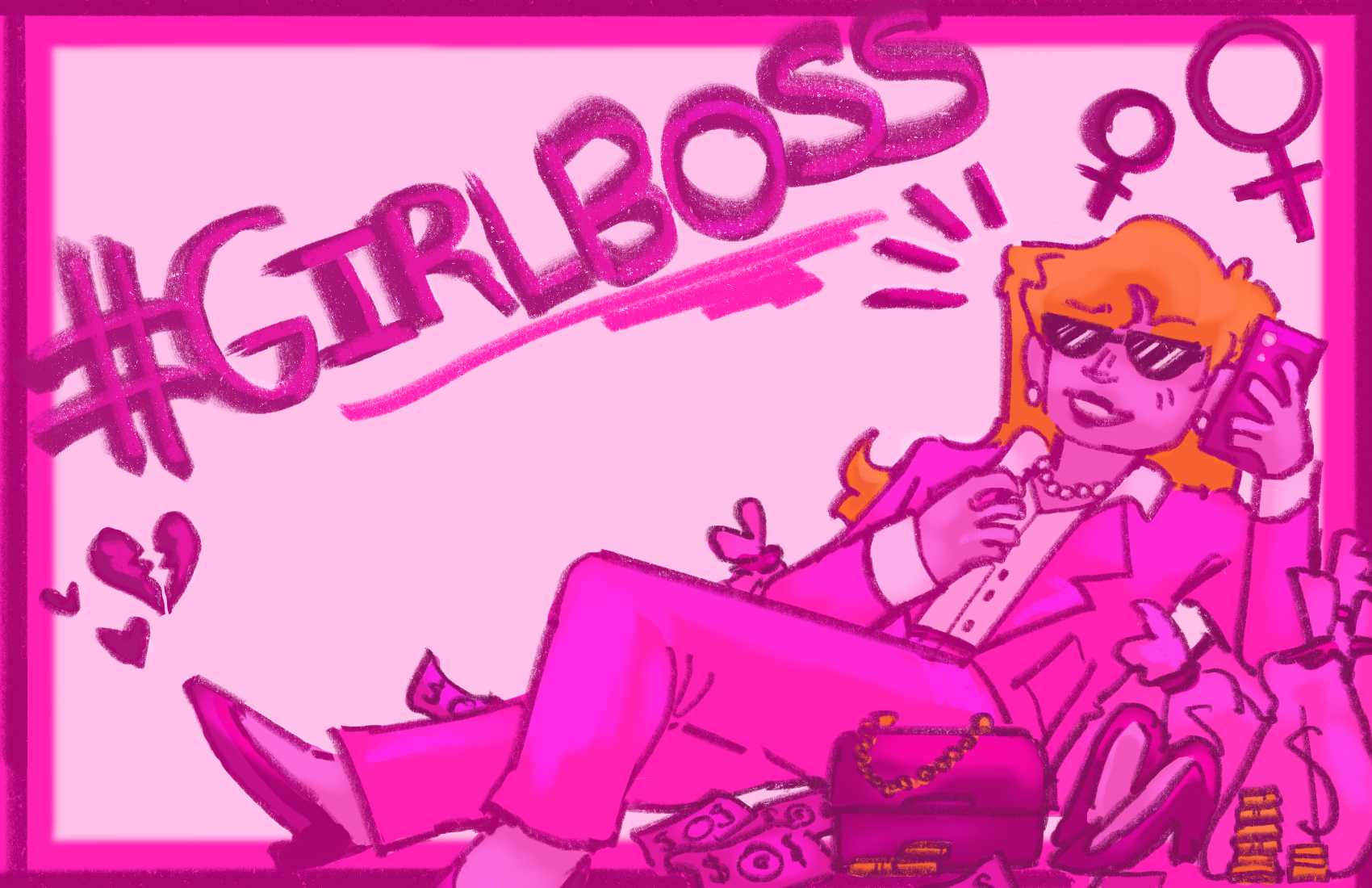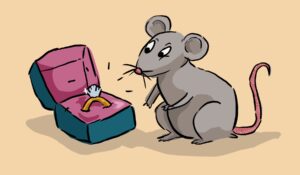“I just mean it’s no longer 1937…we wrote a Snow White that’s not going to be saved by the prince, and she’s not going to be dreaming of true love; she’s dreaming of becoming the leader she knows she can be.”
This quote from Rachel Zegler, discussing the changes made to the upcoming Snow White film—in which she plays the lead role—went viral in 2023 with Zegler getting major backlash. Granted, much of the debate surrounding this statement was overshadowed by the blatant misogynistic hate directed towards her, but the comment itself raises valuable questions regarding a new brand of feminism, known popularly as “girlboss” feminism.
This movement rejects, and often even demonizes, typically feminine emotions such as sensitivity and empathy, as well as the aspiration to have romance and a family, writing them off as old-fashioned and traditional. I agree that there are traditional ideals of femininity that should be discarded, like the notion that the role of women is only to cook and clean. The current major push in the conservative movement for the “trad wife” lifestyle and the encouragement of women to be subservient to men is in no way what I am talking about. There are, without a doubt, values from 1937 that should be left in the past. However, when you tell young girls that they should not dream of love, or worse are bad feminists for wanting it, you have completely missed the mark.
Don’t get me wrong, women should absolutely be in leadership positions. They should want and be able to want a career and a life outside of their relationship. But they should also be taught that it is okay not to want those things. It is okay to dream of true love or motherhood. You can want and have both of those lives, or only one of them. No decision is wrong. What is important to acknowledge, however, is that systems like capitalism, misogyny, and racism make it nearly impossible for women to have both, or ever feel secure in picking one “side.”
Ultimately, capitalism is the main driver behind girlboss feminism. This feminist push to become a leader is really about working within the capitalistic system. Profit maximization is a core tenet of capitalism and its message to everyone, but especially women, is that for your life to be happy, fulfilled, and feminist you must do something “great.” And in this system, something great often requires a high paying, high stress, isolating job, like being a big law attorney, investment banker, or CEO. By overwhelmingly encouraging women to achieve these positions of power, girlboss feminism alienates any path outside of this machine. As a result, a feminist movement intending to lift women up instead exploits them for their abilities and strengths.
The women who perpetuate this idea, like Zegler, are not at fault for this capitalist mindset. It has become ingrained in us because it sounds so good on the surface. These women are genuinely trying to do the right thing as feminists. It is simply that this capitalist girlboss narrative has become synonymous with mainstream feminism. However, women need to understand that their something great does not have to be getting to the top of the corporate ladder or the government. It can be. But it can also be something seen as “less prestigious” like being a mother, a teacher, or a romance novelist, or finding that true love they are dreaming of.
There is another issue that lies within girlboss feminism, one that goes against its own mission: it offers a path to equality that in reality just encourages women to adopt negative, masculine mannerisms. There is a group that society has already successfully convinced love, emotion, and vulnerability are weaknesses because they are inefficient and less profitable: men.
Girlboss feminism, coined after the rise of Sophia Amoruso, who founded Nasty Gal and published #Girlboss, while paying her factory employees €3.50 per hour, tells women they should be rude and crass. It tells women that they need to wear boxy suits, hone in on work, and ignore everything else. The very traits we view as bad in men are what women are being told to adopt. Sure, there are some workplace practices men employ that women should not be afraid to adopt, like being more comfortable asking for higher pay. We don’t need to put exclamation points after every sentence in an email or apologize for being sick. But we also don’t need to swing the pendulum to the other side and develop these “manly” traits.
These capitalistic notions of productivity and worth have permeated through society, been rebranded as “being a man,” and negatively impacted the very group they claimed to be helping. Ideas of isolation, constant competition with others, burying emotion for the sake of work, and an endless cycle of self improvement are targeted at men, yet stem from the capitalist need to make more profit. Men feel utterly restricted in their mental health and isolated in their social life because they have often been forced to forgo traditionally feminine qualities. We have seen how that worked out—why would we tell women to do the same?
For me, what needs to change is our attitude towards love. That is the part of Zegler’s quote that prompted the most backlash, and I believe rightfully so. Love—romantic, familial, platonic, and self—is the most basic thing that we all need. It allows us to connect with others; it is the most pure form of solidarity.
Love is also the most traditionally feminine emotion. Rom-coms, romance novels, love songs, and Valentine’s Day are all marketed towards women. Thus, it makes sense that a capitalist-infected feminism that demonizes feminine desires would attack love. But telling women that love is a weakness serves to isolate them in a harmful capitalist system. Rather than despair at the status quo, the ultimate answer is that there is choice. Yes, you can want to be a leader if that is what you truly want. You can also be a mother if that is what you truly want. Or you can be both.
But no matter what you choose, you cannot abandon love. In a world of profit and gain it is the only way to maintain our humanity. It, at the end of the day, is the true power girlboss feminism tells women to constantly be aiming for. Because to love, to be vulnerable, to get swept up in things, to be passionate and emotional and to care is a power in and of itself. Love is not a weakness. It is a strength.






